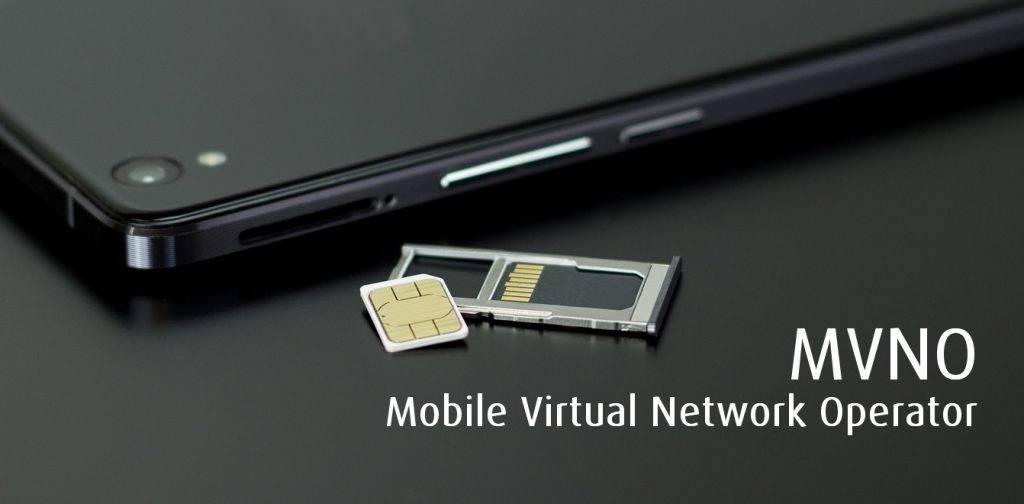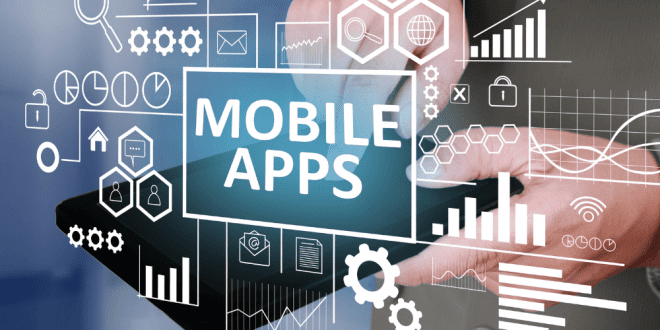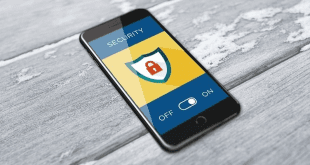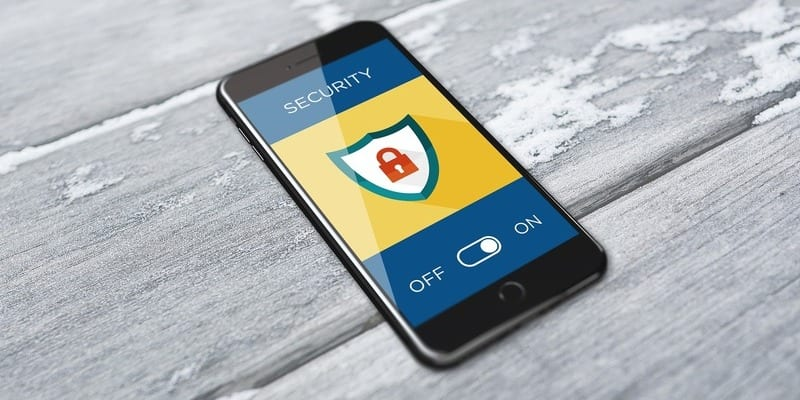The Dark Side of Mobile Apps
How Your Personal Data Is Illegally Shared
In today’s hyper-connected world, mobile apps have seamlessly integrated into our daily lives, offering convenience, entertainment, and solutions to countless tasks. However, there’s a sinister underbelly to the mobile app ecosystem – the illicit sharing of your personal data. While we revel in the benefits these apps provide, it’s crucial to understand how they may be compromising our privacy and security.
This article aims to shed light on the shadowy practices through which mobile apps surreptitiously share your personal data. We’ll uncover the extent of data collected, the deceptive tactics used to obtain consent, and the lucrative business of data monetization. Along the way, we’ll explore the risks this poses to your privacy and security and offer guidance on protecting your valuable personal information.
The Ubiquity of Mobile Apps
Mobile applications have become an integral and inseparable part of our daily lives, infiltrating every corner of modern existence. From social networking giants like Facebook and Instagram to e-commerce behemoths like Amazon and Alibaba, from navigation aids such as Google Maps to fitness trackers like Fitbit, and from productivity tools like Microsoft Office to countless games and entertainment apps, mobile apps are ubiquitous.
Their omnipresence is not a mere coincidence but a testament to their unparalleled convenience and functionality. Mobile apps cater to our diverse needs, enabling us to connect, work, shop, play, and manage our lives with remarkable ease. Their intuitive interfaces, paired with the familiarity of our smartphones, make them irresistible companions in our digital age.
In this age of app-driven convenience, it’s easy to overlook the data they quietly accumulate. Every tap, swipe, and interaction leaves a digital trail, building a comprehensive profile of our preferences, behaviours and habits. While we relish the advantages mobile apps offer, it is essential to recognize that this very convenience and ubiquity create fertile ground for the illicit sharing of our personal data, a topic we’ll delve deeper into as we navigate the dark side of mobile apps
The Data Goldmine
Mobile apps are not just tools for convenience; they are data goldmines, constantly collecting and processing a treasure trove of personal information. Let’s delve into the extent of data collection that occurs behind the scenes, shedding light on the staggering depth of information these apps have access to.
Every time you use a mobile app, it quietly accumulates data about you, building a comprehensive digital profile. This data includes your location, your browsing history, the content you engage with, your contacts, and even your device’s unique identifiers. App developers gather this information for various purposes, including enhancing user experience, targeted advertising, and improving their services.
For instance, a weather app might request access to your location to provide localized forecasts. A social media app may ask for permission to access your camera and microphone to enable photo and video sharing. While these permissions are often necessary for the app’s intended functionality, they also grant access to sensitive data.
Beyond these explicit permissions, apps may also employ tracking technologies like cookies and device fingerprinting to monitor your online behaviour, even when you’re not actively using the app. This continuous surveillance allows them to build a more detailed and comprehensive profile, including your interests, preferences, and habits.
The sheer volume and depth of data collected make mobile apps a goldmine for advertisers, marketers, and data brokers. This information is often packaged and sold to third parties without your explicit consent, fueling the multi-billion-dollar industry of data monetization. As we proceed, we’ll explore how this data is exploited and the implications it has for your privacy and security.
The Illusion of Consent
Mobile apps often request access to various features and data on your device, and they do so under the guise of seeking your consent. However, this consent can be illusory, as many users grant permissions without fully comprehending the implications or the extent of data access they are providing.
When you first install an app, you are typically presented with a list of permissions it requires. These permissions can range from seemingly innocuous requests, such as access to your device’s camera or contacts, to more sensitive ones like location tracking and microphone access. In their quest for convenience and functionality, users often accept these permissions hastily, eager to start using the app.
The illusion of consent is compounded by the fact that users are rarely presented with a detailed explanation of why an app needs a particular permission. Instead, they are often met with vague or generic explanations, which can make it challenging to fully grasp the scope of data collection.
Moreover, mobile apps are known to employ dark patterns, which are manipulative user interface design techniques. These patterns may use misleading wording, confusing options, or subtle pressure tactics to nudge users into granting permissions they might otherwise deny. This practice further erodes the authenticity of consent.
As a result, many users unwittingly give apps access to a wealth of personal data, often without realizing the extent to which their privacy is being compromised. We’ll delve deeper into how this data is leveraged by app developers and third parties, and the potential consequences of this illusion of consent.
The Business of Data Monetization
The data collected by mobile apps is a hot commodity in the digital marketplace. This chapter reveals the lucrative industry of data monetization, where third-party companies purchase and exploit your personal data for targeted advertising, analytics, and other purposes, often without your knowledge or consent.
The data collected by mobile apps doesn’t simply vanish into the digital ether; it becomes a valuable commodity in a thriving industry known as data monetization. This chapter unravels the intricate web of practices that transform your personal data into a lucrative business.
Data monetization involves the process of extracting, analyzing, and selling your personal information to third-party companies, often without your explicit consent or knowledge. These third parties can include advertisers, marketers, data brokers, and other entities seeking to target you with personalized advertisements and services.
One common method of data monetization is the creation of user profiles, which encapsulate your interests, behaviors, and preferences based on your app usage and online activity. These profiles are highly sought after by advertisers looking to deliver precisely tailored advertisements to their target audiences.
Mobile app developers, knowingly or unknowingly, play a central role in this ecosystem by sharing the data they collect with these third parties. Often, these developers enter into agreements with data brokers and advertising networks to generate revenue by selling access to your data.
In essence, your personal data becomes a commodity, traded on a digital marketplace. Advertisers pay handsomely for access to these insights, enabling them to serve you highly personalized advertisements, making it seem as if they know you intimately.
The implications of data monetization extend beyond targeted ads. In the wrong hands, your data can be used for nefarious purposes, such as identity theft, fraud, and other cyber crimes. Moreover, the data-sharing ecosystem lacks transparency, leaving you in the dark about who has access to your information and how it’s being used.
As we delve deeper into the dark side of data monetization, we’ll explore the risks it poses to your privacy and security and the steps you can take to protect yourself in this digital landscape.
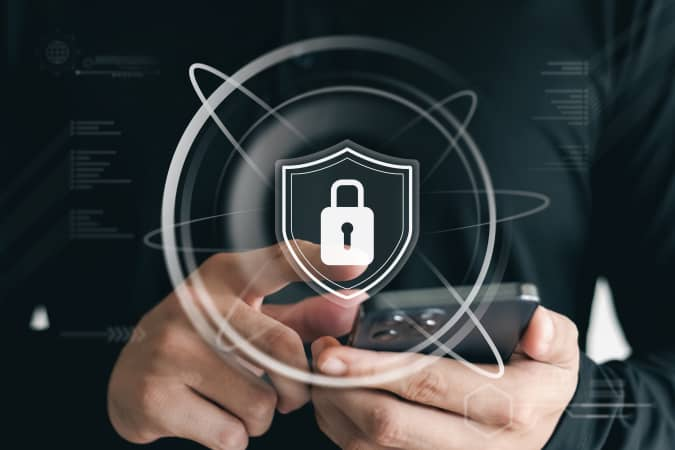
The Risks to Privacy and Security
The illegal sharing of personal data by mobile apps poses significant risks to your privacy and security. Let discuss the potential consequences, including identity theft, phishing attacks, and the misuse of sensitive information. By understanding these risks, you can better protect yourself.
- Identity Theft: Illegally shared personal data can include sensitive information such as your full name, address, phone number, and more. This data can be pieced together to construct a detailed profile, making it easier for malicious actors to steal your identity.
- Phishing Attacks: Armed with knowledge about your interests and online behavior, cyber-criminals can craft highly convincing phishing emails or messages that appear legitimate. Falling victim to these scams can result in financial losses or the compromise of sensitive accounts.
- Stalking and Harassment: Location data collected by mobile apps can potentially be used to track your movements, leaving you vulnerable to stalking or harassment. Malicious individuals may exploit this information for nefarious purposes.
- Data Breaches: Inadequate data protection measures on the part of app developers can lead to data breaches. If a mobile app is compromised, your personal data may fall into the wrong hands, leaving you exposed to various risks.
- Reputation Damage: Personal data shared without consent can include private messages, photos, or videos. If these materials are exposed, it can result in reputation damage, embarrassment, or harm to personal and professional relationships.
- Financial Consequences: The misuse of personal data can lead to financial fraud, unauthorized purchases, or fraudulent accounts opened in your name, potentially resulting in significant financial losses.
- Loss of Control: When your data is illegally shared and monetized, you lose control over how it’s used and who has access to it. This loss of control can leave you feeling vulnerable and exposed in the digital world.
- Erosion of Privacy: The constant surveillance and data collection can erode your sense of privacy. This can have psychological and emotional consequences as you become aware that you’re every move is potentially being monitored.
As mobile apps continue to play an integral role in our lives, it’s essential to be vigilant about the data you share and the permissions you grant. By understanding the risks and taking proactive steps to protect your privacy and security, you can navigate the digital landscape more safely. We’ll explore privacy measures, regulatory efforts, and strategies for safeguarding your personal information.
Regulatory Measures and Privacy Laws
In response to the growing concerns surrounding data privacy and the illicit sharing of personal data by mobile apps, governments around the world have implemented a range of regulatory measures and privacy laws aimed at protecting consumers. Below provides an overview of some key developments in this arena.
- General Data Protection Regulation (GDPR): The European Union’s GDPR is one of the most comprehensive and far-reaching data protection regulations globally. It empowers individuals by giving them control over their personal data and imposes strict requirements on organizations, including mobile app developers, regarding data collection, processing, and consent.
- California Consumer Privacy Act (CCPA): In the United States, California led the way with the CCPA, which grants California residents certain rights over their personal information. This includes the right to know what data is collected and the ability to opt out of the sale of their data.
- Federal Trade Commission (FTC) Enforcement: The FTC in the U.S. has taken legal actions against companies and mobile app developers that engage in unfair or deceptive practices related to data privacy. It has imposed fines and required companies to implement stricter data protection measures.
- Emerging Privacy Legislation: Many other countries and states are in the process of developing or implementing privacy legislation to address the challenges posed by data sharing and protection. These laws vary in scope and stringency but generally aim to enhance transparency and user control over personal data.
- App Store Policies: App store operators like Apple and Google have introduced stricter policies and guidelines for app developers to ensure compliance with privacy standards. They may require developers to disclose data collection practices, provide clear privacy policies, and request explicit user consent.
These regulatory measures and privacy laws represent important steps toward safeguarding user data and raising awareness about data privacy issues. However, enforcement and compliance remain ongoing challenges. Below we will explore steps users can take to protect their personal data and privacy in the face of these complex regulations.
Protecting Your Data
In this section, we will show practical strategies to safeguard your personal data from the illegal sharing practices of mobile apps. We will cover topics such as managing app permissions, adjusting privacy settings, and utilizing trusted security tools to enhance your protection.
- Review App Permissions: Regularly review and manage app permissions on your device. Disable unnecessary permissions that apps may request, especially if they seem unrelated to the app’s primary functionality.
- Install Trusted Apps: Download apps only from reputable sources, such as official app stores like Apple App Store and Google Play Store. These platforms often have stricter security checks for apps.
- Read Privacy Policies: Take the time to read privacy policies and terms of service before installing an app. Look for apps that have clear and transparent data collection practices.
- Use App Settings: Adjust the privacy settings within individual apps. Disable features or services that you don’t need, and limit data sharing to the minimum required for the app’s functionality.
- Regularly Update Apps: Keep your apps up to date to ensure you have the latest security patches and privacy enhancements. Developers often release updates to address vulnerabilities.
- Use a VPN: Consider using a virtual private network (VPN) to encrypt your internet connection, making it more difficult for third parties to monitor your online activity.
- Implement Strong Passwords: Use strong, unique passwords for your app and online accounts. Consider using a password manager to generate and store complex passwords securely.
- Two-Factor Authentication (2FA): Enable 2FA wherever possible, especially for accounts that contain sensitive information. This provides an additional layer of security beyond passwords.
- Regularly Check App Permissions: Periodically review app permissions and revoke access for apps you no longer use or trust.
- Stay Informed: Keep yourself informed about data privacy issues, regulations, and best practices. Awareness is the key to protecting your data.
Remember that while these strategies can enhance your data protection, no method is full proof. The landscape of data privacy is complex, and you may still encounter challenges in keeping your personal data secure. By staying vigilant and practicing good data hygiene, you can reduce the risks associated with the dark side of mobile apps and maintain better control over your digital footprint.
Conclusion and Call to Action
In the rapidly evolving landscape of mobile apps, where convenience and innovation abound, we’ve peeled back the curtain to reveal a less savory reality—the unlawful sharing of your personal data. As we conclude this journey into the depths of data privacy, let’s reflect on what we’ve learned and consider the actions needed to safeguard your digital life.
The ubiquity of mobile apps has revolutionized the way we live, work, and play. We’ve witnessed how these digital tools, seamlessly woven into our daily routines, have unwittingly become data collection engines, amassing an astounding wealth of personal information. The illusion of consent, often shrouded in vague language and dark patterns, has allowed this data harvesting to occur with our unwitting cooperation.
Furthermore, we’ve explored the lucrative business of data monetization, where your personal data is packaged, sold, and exploited by a range of entities, often beyond your knowledge or consent. This monetization fuels the targeted advertising and personalized services that permeate the digital world but also exposes you to a litany of risks, from identity theft to reputation damage.
The risks to your privacy and security are substantial, ranging from identity theft and phishing attacks to stalking and data breaches. We’ve uncovered how the data shared by mobile apps can lead to financial losses, loss of control over your personal information, and an erosion of your sense of privacy.
In response to these concerns, governments and regulatory bodies have introduced privacy laws and measures to protect consumers. Initiatives like the GDPR and CCPA aim to empower individuals with greater control over their personal data and hold organizations accountable for their data practices. App stores, too, have imposed stricter guidelines on developers to promote transparency.
As you navigate this complex landscape, here are some concrete steps you can take to protect your data and privacy:
- Review and Manage Permissions: Regularly scrutinize and manage the permissions granted to apps on your device. Disable unnecessary access to sensitive data and features.
- Choose Trusted Apps: Download apps only from reputable sources, such as official app stores, to minimize the risk of malware and data breaches.
- Read Privacy Policies: Prior to installing an app, read its privacy policy and terms of service. Look for apps that are transparent about their data collection and sharing practices.
- Customize App Settings: Adjust app settings to limit data sharing and turn off features that you don’t need.
- Keep Apps Updated: Ensure your apps are up to date to benefit from the latest security patches and privacy enhancements.
- Use a VPN: Consider using a VPN to encrypt your internet connection and protect your online activity.
- Employ Strong Passwords: Use strong, unique passwords for your accounts and consider using a password manager.
- Implement Two-Factor Authentication (2FA): Enable 2FA wherever possible to add an extra layer of security to your accounts.
- Regularly Review Permissions: Periodically review app permissions and revoke access for apps that are no longer in use or trusted.
- Stay Informed: Continuously educate yourself about data privacy issues, regulations, and best practices to adapt to the evolving landscape.
Your personal data is a valuable asset, and it’s crucial to take proactive steps to protect it. In an age where data is power, safeguarding your personal information is not merely an option—it’s a necessity. By staying vigilant, advocating for transparency, and adhering to best practices, you can regain control over your digital footprint and reduce the risks associated with the darker side of mobile apps. Your data, your privacy, and your security deserve nothing less.
By Abdul W Moghul
 MVNO MVNE MNO Mobile & Telecoms industry intelligence Telecoms Jobs, News and Business
MVNO MVNE MNO Mobile & Telecoms industry intelligence Telecoms Jobs, News and Business
